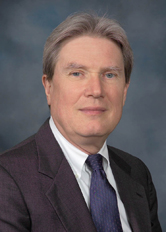 |
Bob Bartee |
Short, but productive.
That would summarize this year’s second session of the 100th Nebraska Legislature.
The 60-day session convened on Jan. 9 with adjournment on April 17. The first session of the biennium (two years) was last year’s 90-day session. Each biennium starts with a long session followed by a short session.
During the 2008 session, Nebraska’s 49 state senators considered 471 new bills and enacted 175 pieces of legislation. Two bills with broad health implications included one that bans smoking in public restaurants and bars (effective June 1, 2009) and another that requires cities with populations of 1,000 or more to put fluoride in their water supplies.
“Both the smoking ban and the fluoride requirement were bills initiated by Sen. Joel Johnson of Kearney,” said Bob Bartee, UNMC’s vice chancellor for external affairs. “He deserves a tremendous amount of credit for bringing these bills forward. They will have a lasting impact on the health of Nebraskans for generations to come.”
Several measures favorably impacted UNMC during the legislative session, Bartee said. These included:
- A bill providing $20 million ($14.4 million to the University of Nebraska and the remainder to Nebraska state colleges) for creation of a new Student Information System (SIS).
- A bill allocating $220,000 in funding for maintenance of the Nebraska Regional Poison Center, a vital program that is made possible through a partnership involving UNMC, The Nebraska Medical Center and others.
- A bill providing $87,500 for UNMC to create plans for a new College of Nursing facility in Lincoln.
Bartee expressed his appreciation for Sen. Steve Lathrop of Omaha for his work on the bill procuring funding for the Nebraska Regional Poison Center and for Sen. Tony Fulton of Lincoln and his efforts in procuring funding for planning of the new College of Nursing facility in Lincoln.
The Appropriations Committee also deserves credit for its support of the university-wide request for the Student Information System, Bartee said.
In addition, Bartee noted two other successes for the University of Nebraska system, which involved measures that were rejected by the Legislature. These included:
- Withdrawal of a proposed constitutional amendment that would have prohibited public institutions from using gender, race, national origin and other factors in admission and hiring decisions.
- The Judiciary Committee not allowing a bill to get out of committee that would have repealed a state law that provides in-state tuition rates to children of illegal immigrants.
This year’s session was notable for 15 veteran state senators, including six standing committee chairpersons, completing their legislative terms due to the term limit law imposed in 2000 that restricts state senators to two consecutive terms (or eight years). The first 20 term-limited senators left the Legislature in 2006.
“The term limit restriction has had a major impact. It really has changed the face of the Legislature and places a premium on establishing relationships with the new senators,” Bartee said. “We want to salute all those senators who are leaving the Legislature. It has been an honor to work with them on a variety of items of concern to UNMC and the university.”
|
|
“I want to thank all our faculty and staff who testified before the Legislature and shared their expertise,” he said. “This is a very valuable public service, and the state senators have come to rely on the knowledge of these individuals to help them better understand legislative issues.”
With an eye to the 2009 Legislative session, Bartee noted three items pertaining to UNMC that may garner interest and possible support — funding for construction of the College of Nursing facility in Lincoln; funding for operational expenses for the proposed College of Nursing division in Norfolk; and funding to help meet the severe workforce shortages in behavioral health in Nebraska.
Ron Withem, associate vice president for university affairs and director of governmental relations for the University of Nebraska, said much of UNMC’s success in the Legislature is attributable to the work of Bartee, who has long been active in university legislative matters.
“Bob is the consummate professional,” Withem said. “His knowledge of politics and the governmental process is invaluable to the legislative initiatives of the entire University of Nebraska.”